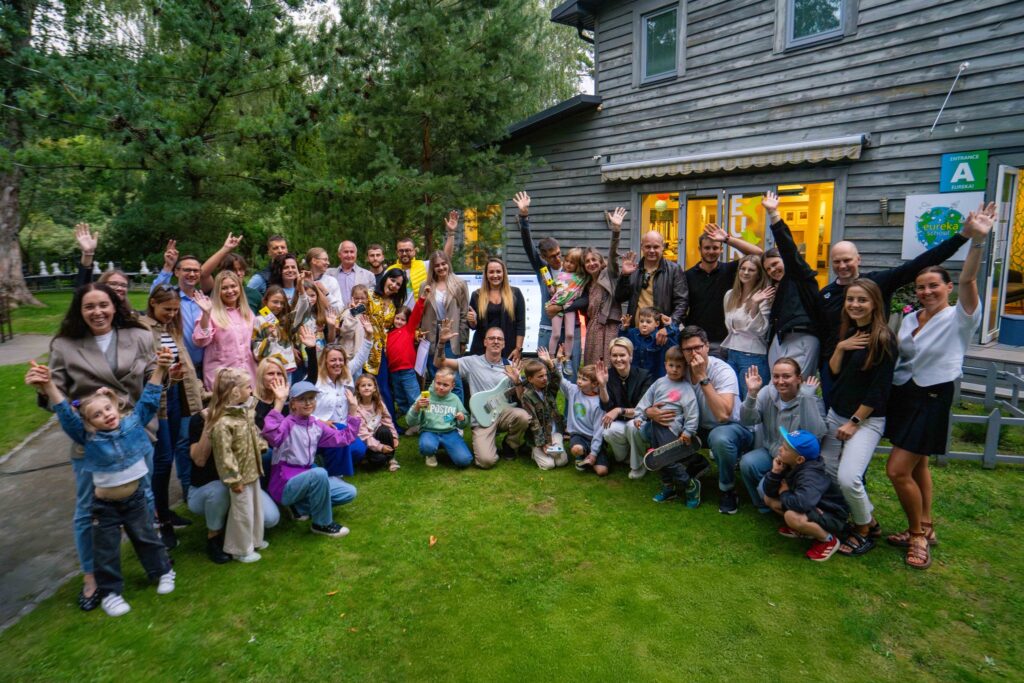 Ugdymas
Ugdymas
Eureka Summer School is full of fun and engaging activities that help children develop and discover new interests. Outdoor games, contextual field trips, experiments and interactive projects allow children to explore the world, get inspiration and have fun learning together with their peers.

It’s a holistic concept of personality development, implemented and integrated by harmonizing different educational dimensions.
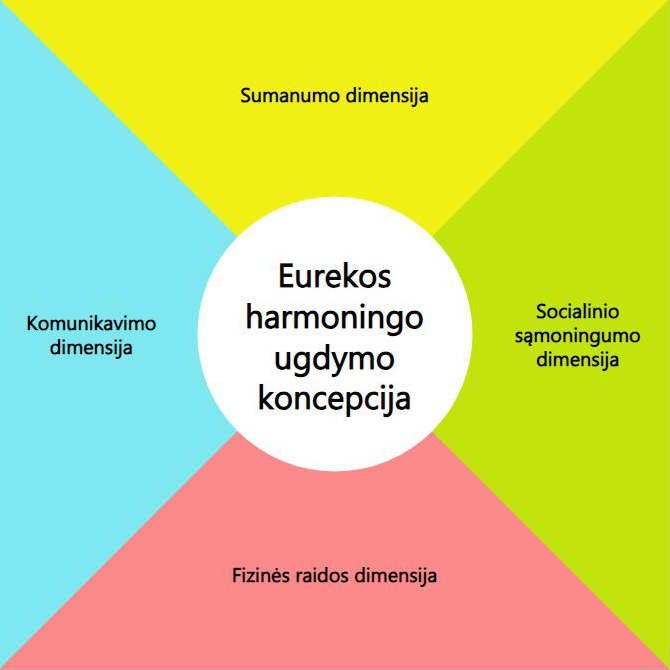

Sports activities, creative games and team-based tasks help children develop communication, collaboration and teamwork skills. Additionally, educational events and activities give children the opportunity to learn new things in a friendly and playful environment.
Below are the educational priorities that are integrated into each week’s educational plans:
Dimension of Intelligence
- Knowledge of the world
- Critical thinking and problem solving
- Logical thinking and calculation
- Creativity
Dimension of Social Awareness
- Emotional intelligence
- Self-confidence
- Initiative
- Cooperation
Physical Development Dimension
- Healthy lifestyle
- Physical activity
- Fine motor skills
- School without borders
Communication Dimension
- Bilingual environment
- Speaking and listening
- Reading
- Writing
Kultūrinė ir pilietinė dimensija
- Creativity
- Cultural competence
- Civic identity and civic power
- Responsibility
What does a day look like in Eureka?
Children’s agenda for children aged 2 – 5 years:
| 7:30 | Children’s Arrival We Play and Wait for our Friends to Come |
| 8:30 | Breakfast Table Etiquette Education |
| 9:00 | Morning Conversation and Exercise |
| 9:45 | Thematic Educational Activity Explorations, experiments, creative activities and projects, toy making, water games |
| 10:45 | Healthy snacks Table Etiquette Education |
| 11:00 | Time to move Sports and Outdoor Play |
| 12:00 | Lunch |
| 12:45 | Yoga |
| 13:00 | Rest Time For non-nappers – Individual Activity |
| 15:00 | Preparation for Dinner |
| 15:30 | Dinner Table Etiquette Education |
| 16:00 | Additional Educational Activity Outdoor activities |
| 16:30 | Evening Library Reading Books, Reflection of the Day |
| 17:00 | Time to move We play, do sports outside and wait for our parents |
| 18:00 | End of school work We Hug, Say Goodbye and Can’t Wait to See Each Other Tomorrow |
6 – 10 metų vaikų vaikų dienotvarkė:
7:30 | Children’s Arrival |
8:30 | Breakfast |
10:00 | Morning Conversation and Exercise Mindfulness and Mental Exercise, Day Planning |
10:30 | Day Education, Nature Hike or Excursion in the City |
12:00 | Lunch Table Etiquette Education |
13:00 | Day Education Explorations, Experiments, Creative Activities and Projects, Toy Making, Water Games |
14:30 | Healthy snacks Table Etiquette Education |
15:00 | Day Education Explorations, Experiments, Creative Activities and Projects, Toy Making, Water Games |
16:00 | Dinner |
16:30 – 18:00 | Outdoor games |
Discovery based education
Discovery-based education promotes children’s curiosity and desire to learn by providing opportunities to explore new things both in and outside of school. In Eureka this method is organized according to a seven-stage structure based on extensive experience and modern educational trends.
Get interest
1
Create intrigue by asking children: “Do you know what the biggest and strongest tree in the forest is?”
Name
2
Introduce oak tree to children, its composition, leaves, and roots. We write the name on the board – it’s a great opportunity to learn letters!
Understand
3
Analyze visual material: read a book about oak trees, show scientific video content. Children see how a small seed grows into a big tree, understand how and why trees breathe, why they need roots, and why tree trunk sizes differ.
Explore
4
We go into the forest or park, where we embrace a tree, try to guess its age, explore its structure, smell it and discuss scent associations. Bringing an acorn into the classroom, we examine it. Parents would be amazed at what we discovered!
Save
5
Time to create! Using a chosen technique we draw an oak tree and color its leaves in various colors. We prepare an exhibition of drawings in the classroom, and we preserve the colorful tree leaves inside a book, which we’ll use in the future.
Empathize
6
Now let’s dive into an incredible role-play game! By listening to the sounds of the forest we imagine ourselves as different trees and forest inhabitants. We create a short film that we share with the Eureka community. We also organise a tree planting campaign involving the Eureka’s family and school neighbors!
Introduce
7
We summarize knowledge, discuss what we have learned and what we would like to learn in the future. Children share their impressions of an oak tree and other trees. After discussing the knowledge accumulated during the week we dream about the adventures and discoveries of the next week!
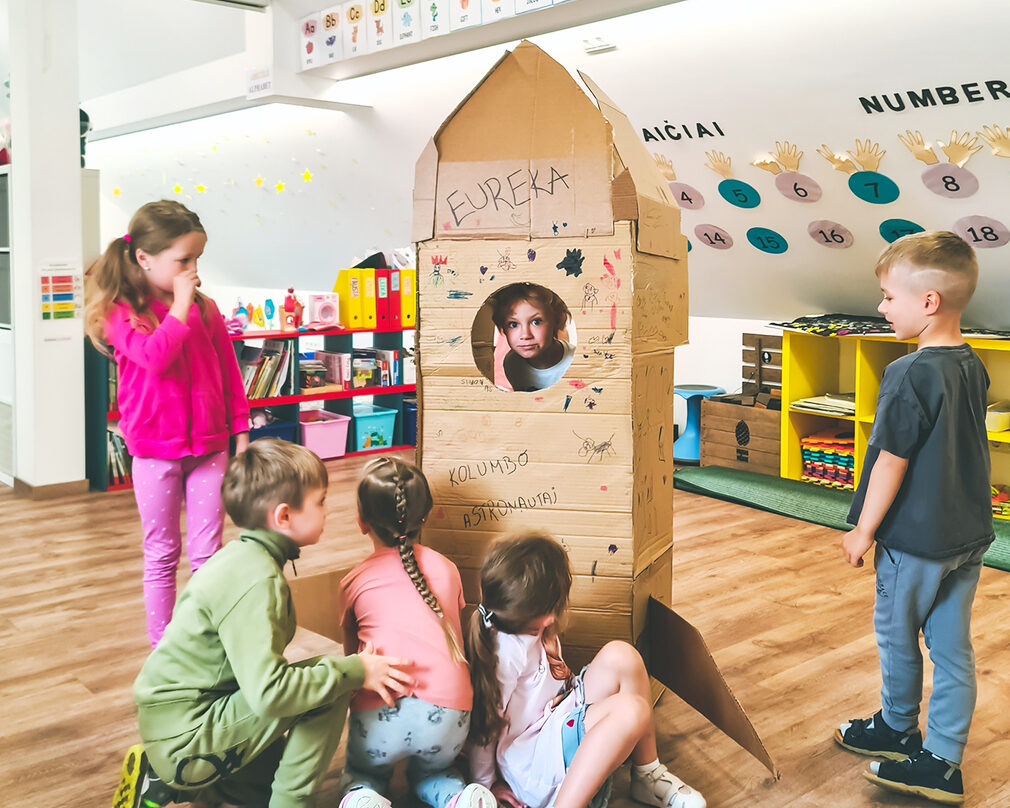
 Learning through play
Learning through play
We believe that a game is children’s work so in Eureka, children spend most of the day learning through play. Play is an important element of a child’s development helping to form social, logical thinking and communication skills, positively impacting children’s emotions, and ensuring an appropriate level of physical activity. In Eureka we integrate free play, educational, team-based and narrative gaming methods.
 Bilingual environment
Bilingual environment
The earlier a child starts learning a new language the faster he learns it without harming the development of their native language. In Eureka children learn a new language naturally in social and communicative situations, playing, interacting and participating in educational activities. In school, at least 20% of the content is delivered in English. Learning more than one language can help to improve memory, achieve higher results in reading, writing, cognitive and intellectual abilities
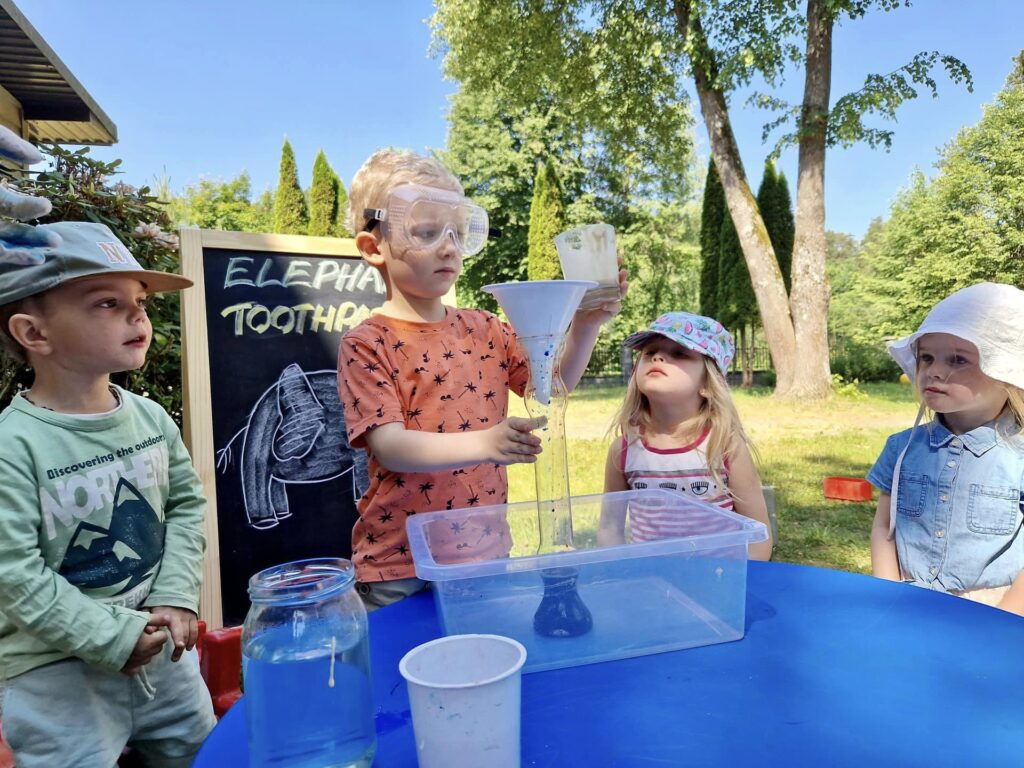
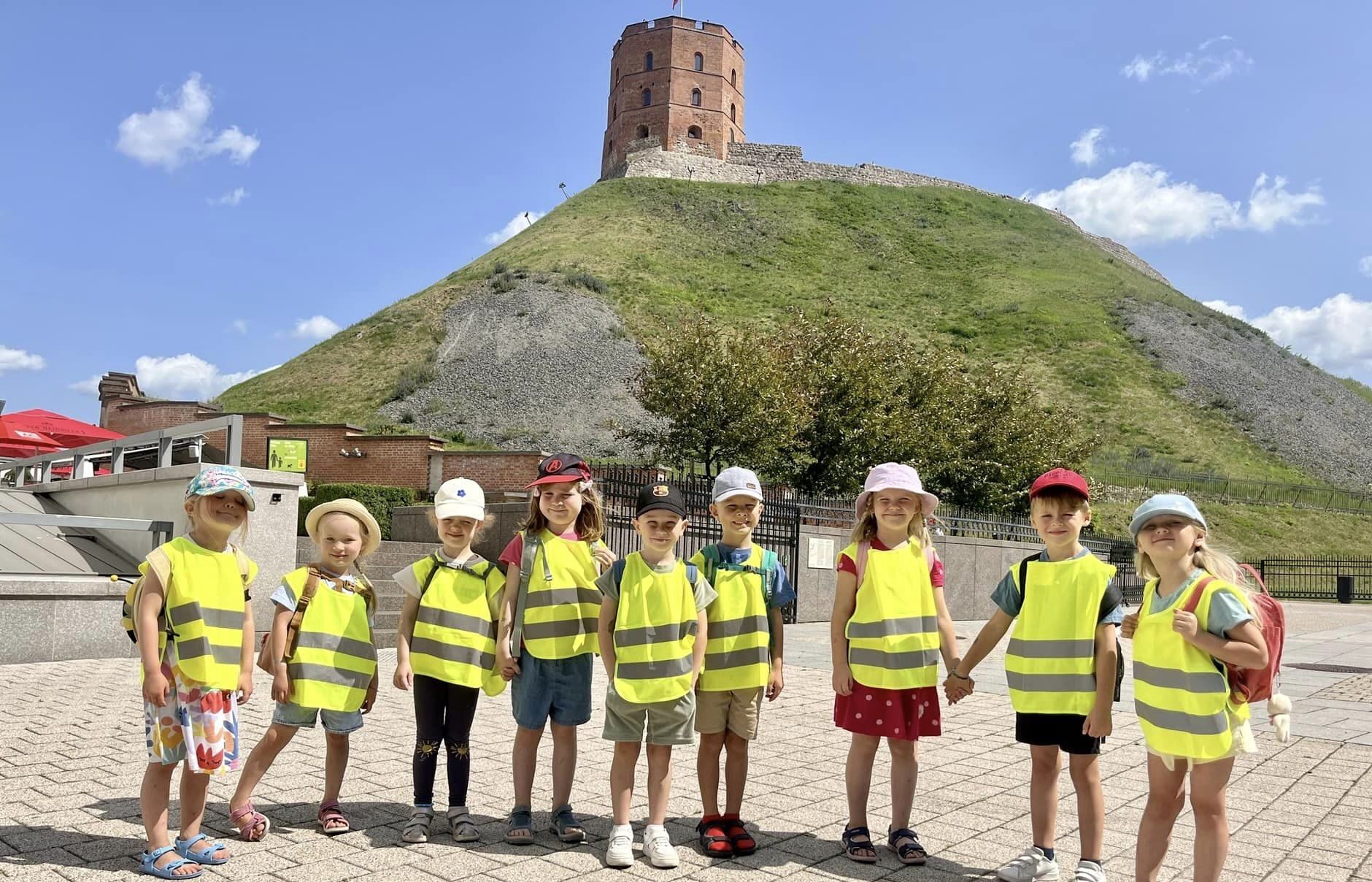
 School without borders
School without borders
In Eureka, children are educated not only in the school environment but also actively while traveling. We go on contextual trips where we explore, investigate the environment and connect it with the theme of the week. Students visit various natural objects, museums, exhibitions, parks and organizations. During the trips, they not only listen but also take photos, film, collaborate and collect materials for individual or group projects.
 Development of emotional intelligence
Development of emotional intelligence
Emotional intelligence is an extremely important aspect of child’s development and well-being. It is the ability to understand, manage and respond to one’s own and others’ feelings and emotions. Therefore, we believe that by nurturing this skill from an early age, children will find it easier to cope with difficulties, better understand themselves and others, resolve conflicts constructively, and communicate successfully with the world.In Eureka we integrate “Kimochi program,” based on characters that help children better understand and identify different emotions. Additionally, we “measure” emotions using the “Emometer”, we perform mindfulness exercises for calming and concentration. Throughout the day, if a child feels the need to be alone, take a deep breath or otherwise calm down, he or she can always use the “Emotion Space” in the classroom, which stands out for its coziness and uniqueness.
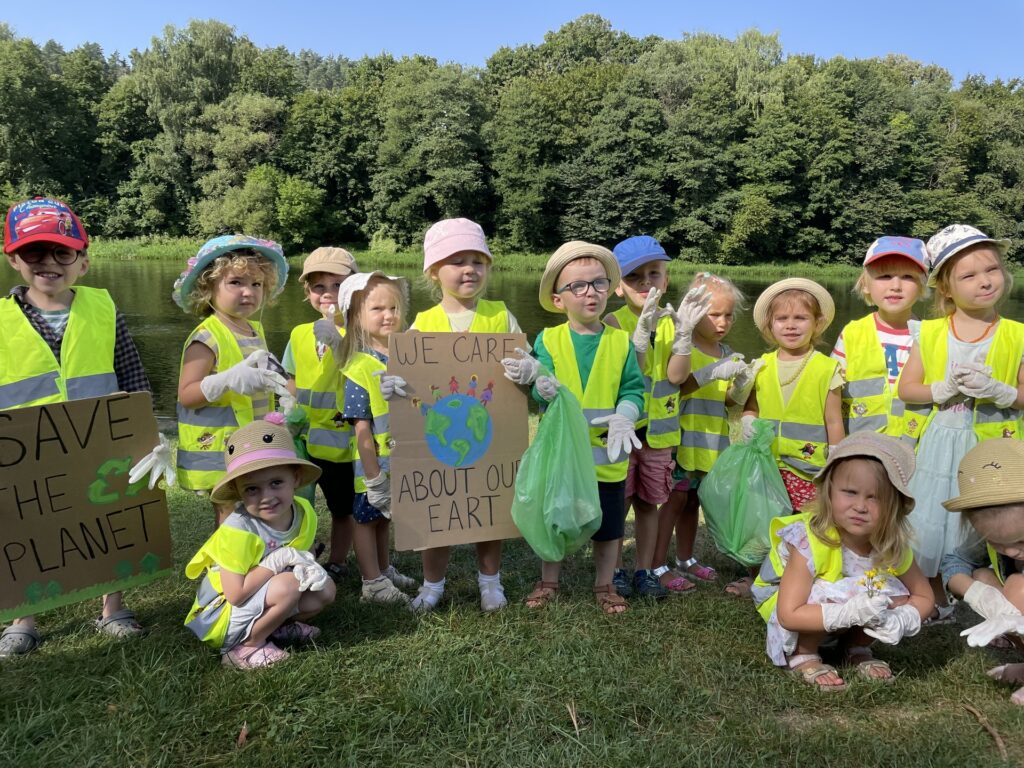
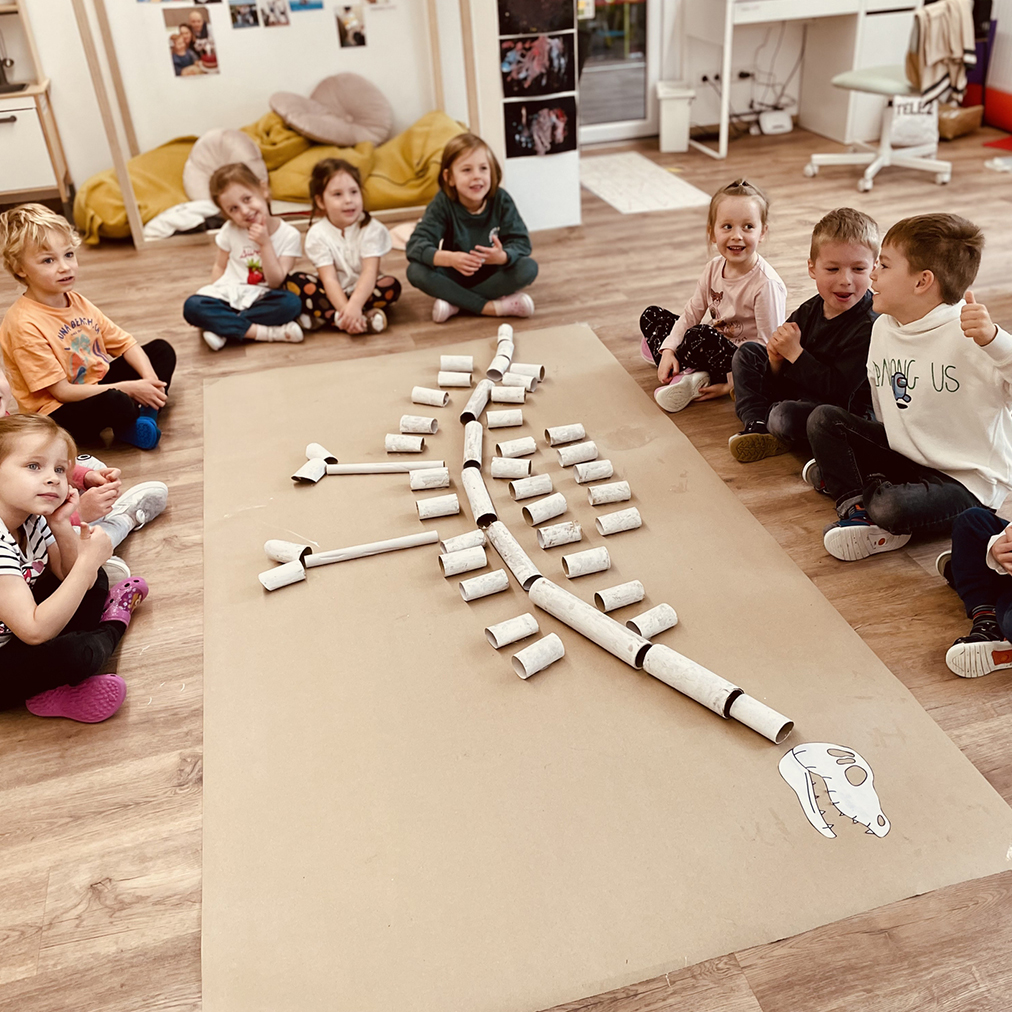
 Education of creativity
Education of creativity
Eureka firmly believes that every child is a unique creator. School strives to reveal children’s talents, not limiting itself to just academic abilities, but also promoting creative growth through a fusion of music, art, dance and design, as well as the use of various materials, tools, and technologies.
Eureka’s team radiates creative energy and enthusiasm, aiming to enrich the curriculum with fresh and exciting creative elements that inspire and enhance children’s learning experiences.
 Sociability
Sociability
In Eureka teachers aim is to create a sense of community for every student. A professional team of educators plans the curriculum so that children would learn to develop teamwork skills, ability to listen, hear others and assist those around them.
